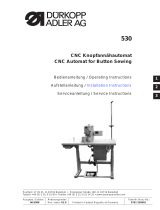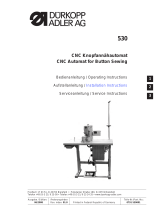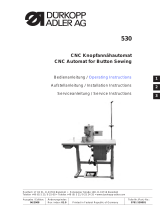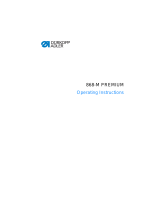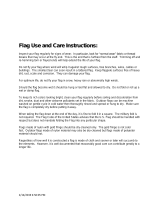
Table of contents
Service Instructions 512-211/532-211 - 03.0 - 10/2017 1
1 About these instructions ...........................................................3
1.1 For whom are these instructions intended?..................................3
1.2 Representation conventions – symbols and characters...............3
1.3 Other documents..........................................................................4
1.4 Liability..........................................................................................5
2 Safety...........................................................................................7
2.1 Basic safety instructions...............................................................7
2.2 Signal words and symbols used in warnings................................8
3 Work principles.........................................................................11
3.1 Order of settings.........................................................................11
3.2 Cable routing..............................................................................11
3.3 Removing the covers..................................................................12
3.3.1 Access to the machine bottom section.......................................12
3.3.2 Removing and fitting the head cover..........................................13
3.3.3 Removing and fitting the arm cover............................................14
3.3.4 Removing and fitting the right-hand side cover..........................14
3.3.5 Removing and fitting the left-hand side cover ............................15
3.3.6 Removing and fitting the rear cover............................................16
3.3.7 Opening and closing the hook flap .............................................17
3.3.8 Removing and inserting the throat plate.....................................17
3.4 Surfaces on shafts......................................................................19
4 Adjusting the light barriers......................................................21
4.1 Light barrier sensor disks ...........................................................21
4.2 Adjusting the left and right switching flags..................................22
4.3 Thread clamp switching flag.......................................................23
5 Adjusting the hook and needle bar.........................................24
5.1 Adjusting the needle bar height..................................................24
5.2 Adjusting the loop stroke and needle guard...............................25
5.3 Adjusting the distance between the hook tip and needle ...........27
6 Adjusting the thread trimmer ..................................................28
7 Adjusting the height of the fabric clamp lift...........................30
8 Adjusting the thread wiper ......................................................32
9 Adjusting the thread regulator................................................33
10 Adjusting the winder................................................................34
10.1 Setting the fill volume .................................................................34
10.2 Adjusting the winding tension.....................................................35
11 Programming ............................................................................37
11.1 Basic software operation............................................................37
11.2 Accessing the technician level....................................................38
11.2.1 Editing parameters in level 1......................................................38
11.2.2 Editing parameters in level 2......................................................39
11.3 Setting the blade position...........................................................39
11.4 Loading software via a USB stick...............................................42
11.4.1 Loading the main program..........................................................42





















